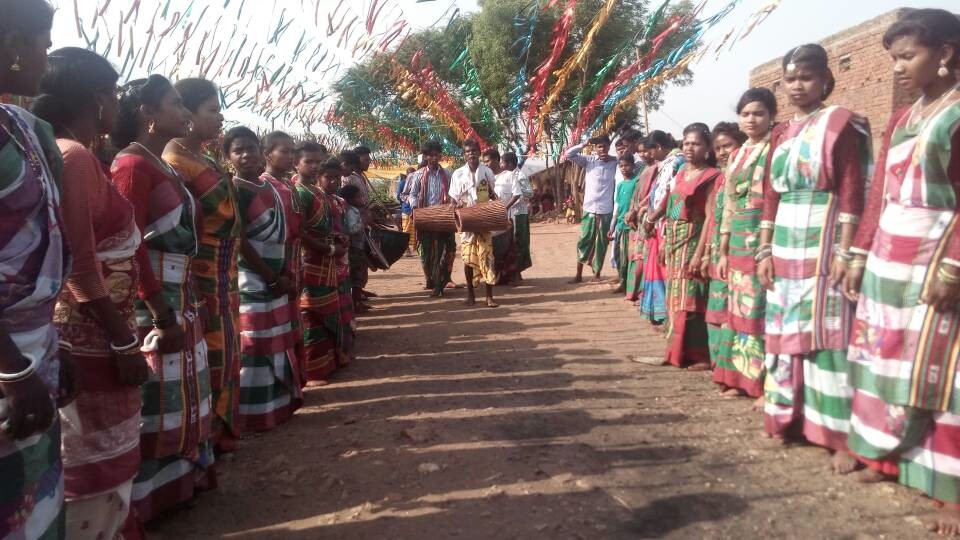Tata Steel observes 112th Birth Anniversary of Pandit Raghunath Murmu

Reaffirming its commitment towards conservation of Tribal Culture and identity, Tata Steel today celebrated the 112th Birth anniversary of Pandit Raghunath Murmu, the founder of Ol-Chiki script for Santhali language, across the Kolhan region
Tata Steel’s Tribal Cultural Society (TCS) in association with ‘Guru Gomke’ Pandit Raghunath Murmu Academy organised prabhat pheris (morning processions) at various places like Patamda, Rajnagar, Potka, Boram, Tiring etc.
Students and teachers of TCS-run Ol Chiki language centres participated in the processions. Students completing a seven-month Ol-Chiki course were also awarded certificates on the occasion.
At the community level, TCS in association with Parsi Sinj Chando Pandit Raghunath Murmu Arts and Cultural Society Gamdesai organised a string of cultural performances in Rajnagar block. Ms Urmila Ekka, Head, Tribal Cultural Society, was present on the occasion.
Santahli folk and dance performances were the major highlights of the cultural programmes. Santali artists mesmerised the audience with `Rinjha’, `Surpha’ and `Dasai’ dance performances.
About Pt. Raghunath Murmu
Pandit Raghunath Murmu was born in Dandbose (Dahardih) village, Mayurbhanj district of Orissa. After a brief stint in technical profession, he took up the job of teaching in Badomtolia high school. During this time, he was drawn into Santhali literatures. Santhali is a language with its own special characteristics, and has a literature which dates back to the beginning of the 15th century. He felt that Santhals with their rich cultural heritage and tradition also need a separate script to preserve and promote their language, and therefore, he took up the work of inventing Ol Chiki script for writing Santhali. The Ol Chiki was unveiled in 1925. He wrote over 150 books covering novels, drama, poetry, and stories in Santhali using Ol Chiki as a part of his extensive promotion to empower the Santhal community culturally. "Darege Dhan", "Sidhu-Kanhu", and "Kherwal Bir" are among the most acclaimed of his works apart from “Bidu Chandan”.









